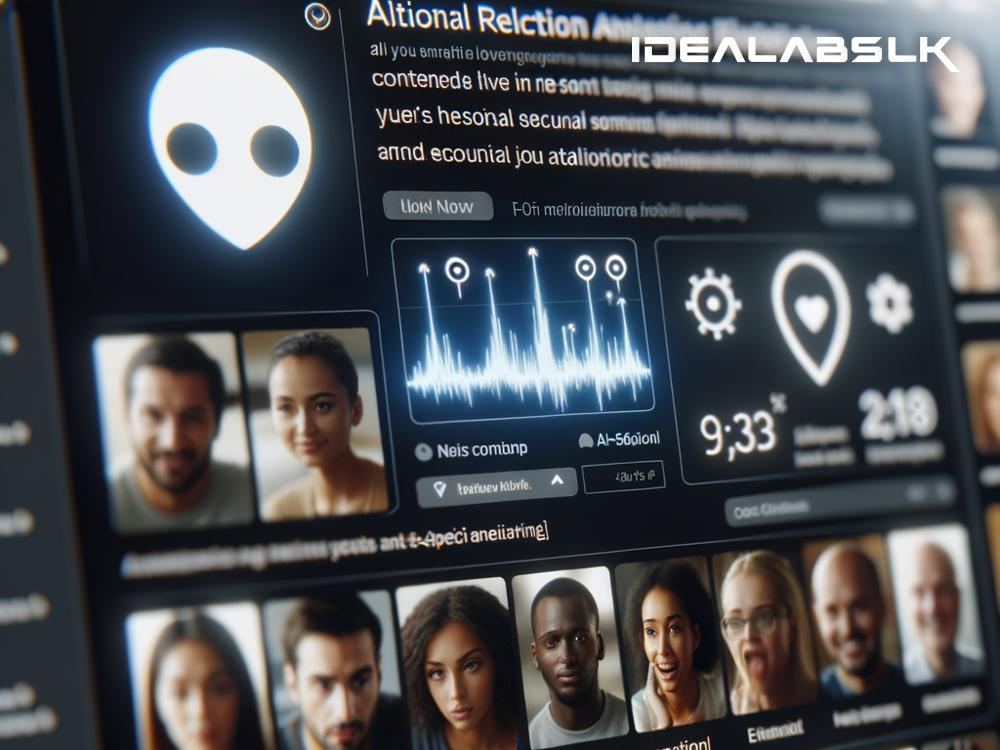AI's Role in Unraveling Public Emotion Towards Celebrity Content Online
In the constantly buzzing world of celebrity news and social media buzz, it's crucial to understand not only what content gets circulated but how people are emotionally reacting to it. This is where Artificial Intelligence (AI) steps in, shifting through the virtual sea of posts, tweets, likes, and shares to detect how we genuinely feel about what we see online. The technology behind AI's emotional detection capabilities is both fascinating and revolutionary, fundamentally altering how marketers, creators, and even the celebrities themselves understand public reception.
So, how does AI manage to pick up on our emotional cues online, especially in response to celebrity content? Let's break it down into simpler terms.
Understanding AI and Emotional Detection
At its core, AI simulates human intelligence processes by machines, especially computer systems. This technology includes learning (the acquisition of information and rules for using the information), reasoning (using the rules to reach approximate or definite conclusions), and self-correction. When it comes to detecting emotions, AI systems are trained to recognize them by analyzing vast amounts of data including text, images, videos, and audio recordings.
1. Text Analysis
When people react to celebrity content online, they often express their feelings through comments, tweets, and various forms of written posts. AI uses something called Natural Language Processing (NLP) to understand and interpret the sentiment behind these words. Whether it's the joy of seeing a favorite actor win an award or the sorrow of a beloved musician passing away, AI algorithms can detect these emotions based on language cues and the context in which words are used.
2. Visual Content Analysis
AI doesn't stop at text. With celebrities often being at the center of visual media, the reaction to images and videos is also a significant emotional data source. AI technologies equipped with image and video processing capabilities can analyze facial expressions, body language, and even the video's general tone. For instance, an AI might recognize smiles, frowns, and tears in reaction videos to new movie trailers, giving insights into how excited or disappointed fans are.
3. Engagement and Interaction Analysis
Beyond what people say and how they visually react, there's also much to learn from how they interact with celebrity content. Likes, shares, retweets, and the speed at which content spreads are telling of the audience's emotional engagement. AI systems can track these metrics in real-time, providing an immediate sense of which content is resonating emotionally and why.
Challenges and Ethics
As much as AI in detecting emotional reactions offers exciting opportunities, it's not without its challenges. The accuracy of emotion detection can vary based on the quality of the data AI is trained on and the complexity of human emotions themselves. Moreover, the ethics of emotion detection, particularly consent and privacy concerns, are critical discussions that need to be at the forefront as this technology continues to evolve.
Impact and Application
Understanding emotional reactions to celebrity content online has numerous applications, from marketing and public relations to mental health research. For brands and marketers, these insights can guide more emotionally resonant campaigns. Celebrities and their management teams can better gauge public sentiment, tailoring their communications to strengthen their connection with fans. Furthermore, analyzing the emotional impact of certain content can offer valuable insights into broader social and psychological trends, contributing to our understanding of digital wellness.
Conclusion
The integration of AI into detecting and analyzing online emotional reactions to celebrity content symbolizes a significant shift in understanding public sentiment. As AI technologies continue to evolve and become more sophisticated, so too will our ability to grasp the emotional nuances of digital interactions. This new horizon of emotional intelligence not only opens exciting opportunities for marketers and content creators but also challenges us to think critically about the ethical implications of such profound insights into our online reactions.
By combining the power of AI with human empathy and ethical responsibility, we stand on the brink of a more emotionally informed digital age, one where we can genuinely understand the heartbeat of the public's response to the whirlwind of celebrity culture that colors our online world.

